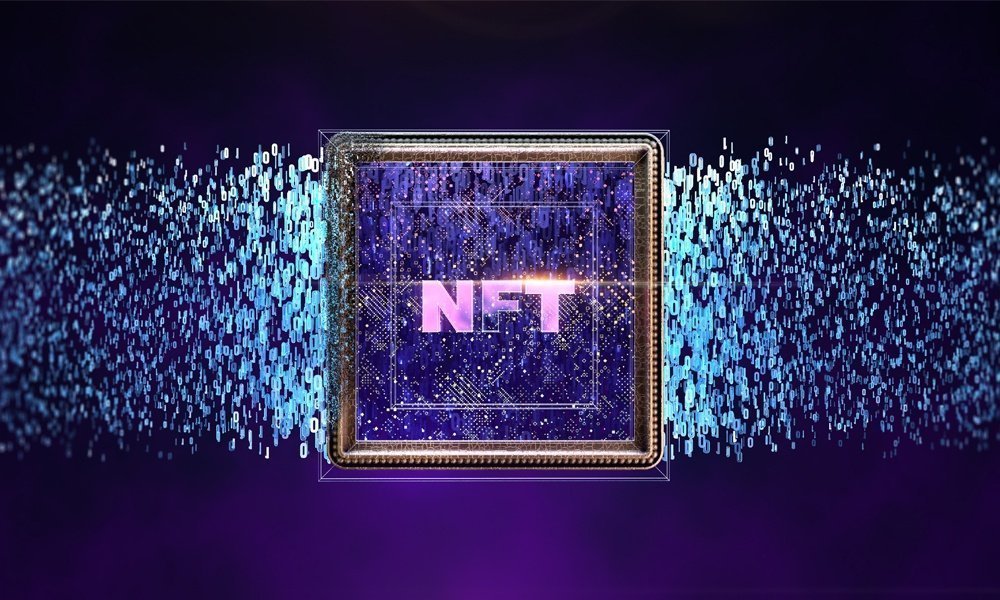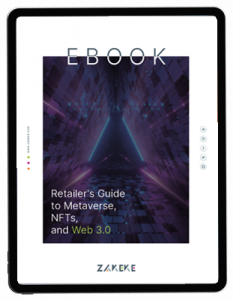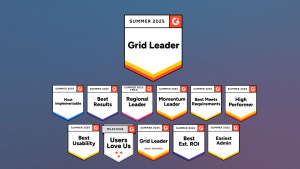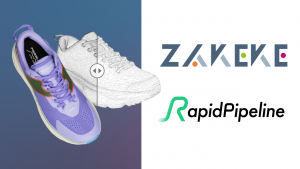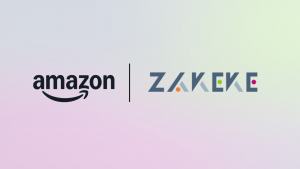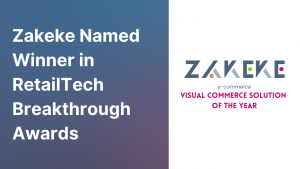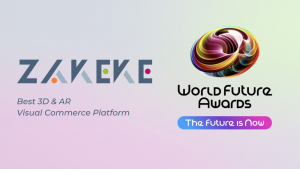The convergence of eCommerce, the Metaverse and NFTs
Trends in e-commerce are constantly changing, and you may be finding it quite difficult to keep up with all of the topics. The folks at Zakeke are here to help as we stay plugged into the technologies and trends that matter and will move the needle for business. Today we look ahead to the impact that the metaverse and NFTs will have on businesses, especially eCommerce.
• The usage of the word NFT increased 11,000% last year; 45% of US online adults have never heard of NFTs, per Forrester. Additionally, 28% said they still don’t understand what NFTs are.
• A majority (71%) of US adults do not believe that NFTs will become commonplace collector’s items or speculative investments, per Civic Science.
• The vast majority of NFT transactions in 2021 were at the retail level, below $10,000 worth of cryptocurrency, per Chainalysis.
• In recent months, companies like Gap, Hennessy, Nike, and Walmart have joined Adidas and Prada by entering into the NFT pool.
Figures for the metaverse are similar and with so much hype and “pie in the sky” discussion it is no wonder why so many people are skeptical of these technologies and why there is little understanding of space.
For most people the metaverse is still something of an obscure and opaque concept, however, that could soon change. Mainstream media outlets such as the New York Times are running metaverse tutorials; traditional brands like Sotheby’s and Coca Cola are wading into the metaverse; and in a very public way, Mark Zuckerberg has bet Facebook’s future on it, announcing that the company’s overarching goal is to “help bring the metaverse to life.”
The metaverse may very well be one of the future game changers of the NFT space as it can be a place to store and appreciate NFT art, it can be a hub for gaming, and it’s an evolved version of how we hang out online. This trend began well before the pandemic and like many things, has been accelerated by the pandemic. We do not expect a single definition of the ‘Metaverse as the Metaverse will build upon the internet and iteratively transform it. With respect to eCommerce and the metaverse, we are starting to see brands enter this space.
This past year Atari and Sotheby’s opened a virtual art gallery in the metaverse, followed by Coca-Cola with their “can-top party” where you could swim inside a bottle of Coke and experience being inside the bubbles. The metaverse enables unique shopping and buying experiences, as well as compelling content and brands are just starting to tap into this world. We are seeing metaverse artists take a brand and put a fresh, modern twist on it to create NFT art. Which brings us to NFTs and brands in e-commerce. NFTs have generated a lot of media attention and become a reality in the arts and entertainment worlds. Yet, beyond these early applications, many practical real-world business and ecommerce use cases, from licensing and certifications to supply chain management and logistics, remain nascent or are just making their way into the market.
Certification and documentation
As NFTs contain code with a unique set of information, they can be used to tokenize documentation such as degrees, academic certificates, licenses and other qualifications as well as medical records, birth and death certificates. An identity or certification can be issued directly over the blockchain as an NFT, which can be traced back to the owner. So, employing NFTs to digitally store and protect medical history, personal profiles, education and address details gives users better control of their data and can help prevent identity theft.
eCommerce
Luxury brands are now coming to the NFT space. The amalgamation of high fashion and blockchain has started to create a revolution in the fashion industry. The set includes physical assets like retail clothing and other accessories along with their digital companions as NFTs. The merger of technology like NFT and augmented reality with physical couture has unveiled a new line of digital apparel as well as new digital shopping experiences. Luxury brand Dolce & Gabbana sold its inaugural nine piece collection of NFTs, called “Collezione Genesi,” a mix of high fashion and blockchain, for $5.6 million. The set included both physical items (women’s dresses) and their digital companions as NFTs. At London Fashion Week, a brand called Auroboros, billing itself as “the first fashion house to merge science and technology with physical couture,” unveiled a line of digital apparel that you “wear” using augmented reality (AR).
Art, luxury brands, sports, and memorabilia
Thus far, applications for NFTs that have taken off are primarily in the collectibles, art, gaming and virtual worlds. Sports tickets and other collectibles are also being tokenized. Examples of sports digital collectibles include “Moments,” sold on the NBA Top Shot platform. Moments might include various digital assets or the NBA’s Top Shot, a blockchain-based trading card system that offers game highlights.
NFTs play a much larger role in eCommerce than just art and luxury brands. Authentication and supply chain management are burgeoning use cases for NFTs.
They can be used to ensure that the product you are purchasing is authentic. Since the blockchain can permanently store information about the product, checking for rarity and authenticity will soon be a thing on physical products too.
Also, they can also be used to store information about the manufacturing process, ensuring that everything is fair trade. Their applications don’t stop at consumer products either. There have already been numerous companies successfully using NFTs for industrial design prototyping purposes.
Supply chain and logistics
The main function of NFTs in the supply chain lies in authenticating products, ensuring their quality and verifying their origin. Although in the early stages, NFTs on blockchain are suitable for logistics applications because of their immutability and transparency, which keeps supply chain data authentic and reliable. In the food and other perishable industries, knowing where the goods have been and for how much time is crucial as well as verifying where they came from, what is in it, and so forth.
By using the blockchain, NFTs can be attached to a product, giving it an NFT identifier that cannot be tampered with. NFTs eliminate counterfeiting, help trace the movement of goods along the supply chain and assure uniqueness. This would be applicable to supply chains for luxury fashion brands. For businesses like the auto industry, NFTs can also provide information regarding each material and component in a particular product.
This could help with cost control. NFTs would also be useful for industries looking to track the use of recyclable and sustainable materials. In addition, NFTs can also give companies the ability to track their products from manufacturing through shipping and delivery.
This gives customers insight into what they are spending money on as well as maintaining transparency within a company’s supply chain.
These are but a few of the more pragmatic use cases for NFTs. Stay tuned as this technology and market continue to mature and as more minds find more and more creative ways to use and monetize the tech.



